

Continue reading Why We Think it is Fitting to Compare BIDs to Nazis



Good evening. My name is John Tronson. I’m a member of the Hollywood Entertainment District, which is a property-owner based business improvement district in Hollywood.
All these people start off by saying something true. It’s meant to lull your suspicions. Don’t let it.

The way a property-based BID works is this: If the majority of the property owners in a district agree, the city adds an extra assessment to their property tax, keeps some part of the money raised for administrative overhead, and distributes the rest back to the BID to spend on specific kinds of services in the district. There are two important points to remember. First, a BID can be established over the objection of individual property owners. Only a majority need approve. Second, once a BID is established, the assessment is no longer voluntary. It is compulsory. Non-payment is punishable by the full range of state action2 up to and including violent confiscation of property. In other words, this assessment, once paid, is a tax. After all, income tax might be considered voluntary in this same sense. The Sixteenth Amendment to the Constitution was put in place by elected representatives, so in a way, the people to be taxed consented to the taxation. But now that it’s in place, income tax is no longer voluntary, just as BID assessments are no longer voluntary. This is consistent with the standard definition:
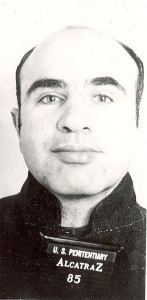
Now, everyone who pays taxes has, at one point or another, thought of that money as still their own. But really, it’s not. Try telling a cop not to give you a ticket because you pay their salary with your “own money.” Try telling a professor at UCLA they have to give your kid an A+ because it’s your “own money” that supports them. It’s a losing argument. Taxes, once paid, belong to the public, not to the people who paid them. BID assessments are taxes. BID assessments are public money. Now, as to John’s statement about what they do with that public money, it’s true as far as it goes. That’s not all they spend the money on, but they do spend it on that. We won’t argue. Onward!
Continue reading John Tronson in Van Nuys: Money doesn’t talk, it swears1

there were a series of four hearings that the chief administrative office staff held on the… the sidewalk vending ordinance. … It’s just this kind of amorphous set of hearings, which were completely dysfunctional, disrespectful, and almost, um, resembled a circus.
In the same meeting, Kerry explained that she wasn’t putting up with this, not for a second, and told everyone what she’d done about it:
So actually, Carol Schatz and I wrote a letter to Herb Wesson, the president of the city council after that meeting saying this is, this is really not being, you know, well-handled, there’s no security, it’s intimidating to people, there are people who did not want to testify. So the subsequent two hearings were, um, maybe a little bit more well-behaved.

The lyrics are cruder than Kerry Morrison’s, but the tune’s the same.2
Continue reading Kerry Morrison in Van Nuys: Where the home in the valley meets the damp dirty prison / Where the executioner’s face is always well hidden1
 The other day I got the urge to read a little more about Thurgood Marshall. The Los Angeles Public Library’s catalog led me to a book by badass civil rights lawyer Jack Greenberg (read it, it’s fabulous: Crusaders in the Courts, although it’s not the book I’m recommending). That led me to look for other books by Greenberg, and thus appeared before me a book called Off the Emery Wheel which, as you can see, was published in 1935 by an outfit in Hollywood called the Cloister Press. Clearly this was a different Jack Greenberg, but nevertheless I thought it’d be interesting to take a look.
The other day I got the urge to read a little more about Thurgood Marshall. The Los Angeles Public Library’s catalog led me to a book by badass civil rights lawyer Jack Greenberg (read it, it’s fabulous: Crusaders in the Courts, although it’s not the book I’m recommending). That led me to look for other books by Greenberg, and thus appeared before me a book called Off the Emery Wheel which, as you can see, was published in 1935 by an outfit in Hollywood called the Cloister Press. Clearly this was a different Jack Greenberg, but nevertheless I thought it’d be interesting to take a look.
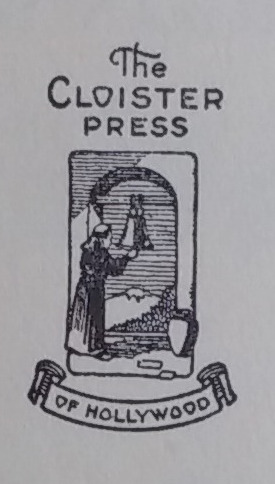
The LAPL’s only copy is noncirculating, and, while a trip to the big library downtown is always nice even though it’s not plausible anymore to combine it with a visit to Grand Central Market since the goddamned-hipster-douchebag apocalypse and its associated fourteen dollar “revisionings” of the Egg McMuffin and suchlike nonsense, I didn’t really have time. However, I’ve been spending a lot of time in the stacks at UCLA, working on a historical project which you’ll read about here at some point, I’m sure (and which is at least somewhat related to the Hollywood BIDs, unlike this piece) so I thought I’d check their catalog. Well, Lo! And behold, they own a copy, which I promptly ordered up out of storage.

And what a pleasant little volume to hold this turned out to be! 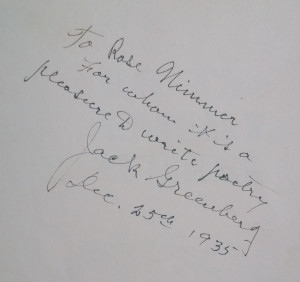

Continue reading Off the Emery Wheel
Previous installments of this series appear here: Part 1 and Part 2

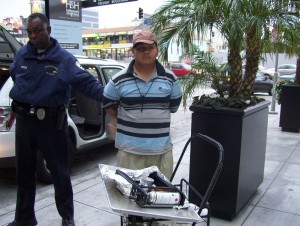
She and her minions rank this man’s life and well-being below the putative, delusionally construed rights of their employers not only to own property in Hollywood, to make untold amounts of money in exchange for very little productive labor, and not only that, but to have an extraordinarily immoral amount of control over the social conditions of life in places and neighborhoods where they don’t even live. In the face of this, Kerry Morrison has the audacity to complain about the audience being “uncivil” to her minions? Quel chutzpah, n’est ce pas? Anyway, in his speech, this man makes it clear that he knows that they’re his enemy. And he’s not wrong. They are his enemy. They are our enemies.
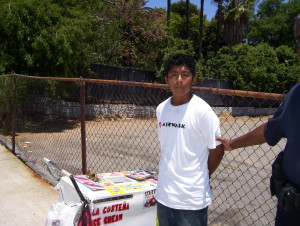
By example, for myself, I make ninety dollars a day. And I support my family with that money. … Our life … is very different than yours. Our day is starting at 4 a.m., and we’ll finish at around 9 p.m. for just a few dollars, but it’s OK.
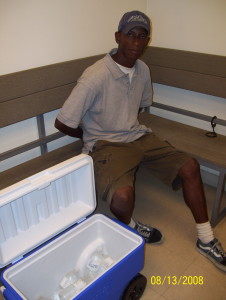
Continue reading The True Facts About the May 28, 2015, Community Sidewalk Vending Meeting at Boyle Heights City Hall Revealed Here (With Audio) for All to Hear and Judge and Opinionate Upon! Part 3: the Good Guys

there were a series of four hearings that the chief administrative office staff held on the… the sidewalk vending ordinance. … It’s just this kind of amorphous set of hearings, which were completely dysfunctional, disrespectful, and almost, um, resembled a circus.
Now listen, O citizens of Hollywood, to HPOA staffie Devin Strecker speaking before the same meeting:
Also sprach Devin Strecher:
There’s a transcription after the break if you care to read rather than to listen, and after the break’s where we’re going to separate the wheat from the chaff, which is a valid if cliched metaphor even if, as in this case, there’s no wheat atall.
Continue reading The True Facts About the May 28, 2015, Community Sidewalk Vending Meeting at Boyle Heights City Hall Revealed Here (With Audio) for All to Hear and Judge and Opinionate Upon! Part 2: Devin Strecker



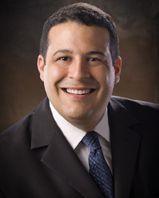
Things began to take an interesting turn in March, though. That’s when Kerry Morrison, unconstrained by any Institutional Review Board, by any ethical guidelines for the use of human subjects, by any standards, professional or amateur, by any method, scientific or humane, by any laws, human or divine, written or unwritten, criminal or civil, announced yet another experiment in the social-laboratory-for-the-criminalization-of-homelessness gestalt-slash-weltanschauung that the HPOA has overlain upon our beloved Hollywood in its 20 years of madcap malcriado misrule.2
Continue reading Ever-Delusional BID’s Targeting of Homeless Alcohol Use, Impunitizing Scofflaw Liquor Dealers, Denial of Laws of Nature, Continues, with Complicity, Connivance of City Attorney’s Office, Apace


So what horrific incident was it that required the presence of about a dozen of Hollywood’s finest1 on a pleasant Tuesday afternoon on Ivar Avenue? Murder, rape, homeless encampment, street-preaching? The amazing thing is that no one there seemed to know for sure except, we assume given that the principle of charity requires us to assume that the BID Patrol both has reasons for its actions and at the same time knows what those reasons are, the officers themselves.
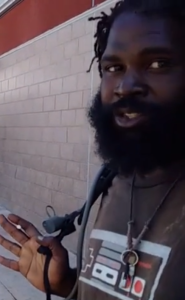
One witness, though, spent the time and the effort to share his theory on the BID Patrol’s motivation with our correspondent. This is what David Graeber calls “interpretative labor,” an activity which, as Graeber has it, “much of the everyday business of social life” comprises, an activity in which people with guns, made stupid by their own potential for state-sanctioned violence, do not typically engage, as they clearly do not in this case:2
Thank you for filming, cause they only pulled up when I started talking about God and Jesus. I was just talking about God and Jesus and taking the Illuminati down, and every day they don’t never bother nobody, and let them sit here, right? Well, all of a sudden today I came and started talking about God and Jesus and taking down the Illuminati, cause I’m in the middle of a documentary, all of a sudden they get a hundred calls a day. God bless us all, the Holy Spirit, in Jesus’ name.
Continue reading The Hollywood BID Patrol’s Intransigence on Transience Provides Yet Another Performative Demonstration of David Graeber’s Theory of Violence, Stupidity, and Interpretive Labor